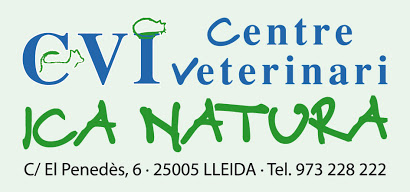Deworming in dogs

Caring for our dogs involves more than just feeding and walking them. A fundamental aspect is deworming, both internally and externally. This process not only protects your pet from diseases, but also safeguards the health of those who live with it, which is why deworming is a pillar in both human and veterinary health.
Parasites that affect dogs can be classified in different ways, but an easy and intuitive way is to differentiate between internal and external parasites.
Internal parasites refer to intestinal worms, lungworms and also those that affect the heart. Although there are worms that affect other organs (such as the eyes), as well as other types of parasites (coccidia, protozoa, etc.) they usually require more precise diagnoses and specific treatments, which we will not discuss today.
External parasites are the group of parasites that live or feed on the skin or hair of the dog. These include fleas, ticks, mites, lice and mosquitoes.
Different parasites can cause a variety of clinical symptoms that depend on the parasitic load and the immune status of the dog. Diarrhea, vomiting, weight loss, local irritation, anaemia and infections are some of the consequences that can be found. In addition, these parasites can often be the vector of other diseases such as leishmaniasis or ehrlichiosis, for example.
Internal deworming
Although different worms can affect different organs, all of them can be treated with broad-spectrum molecules that are effective against a large number of worms (flat and round). Internal deworming protocols are prophylactic, meaning that they are not only applied when we have a diagnosis of parasitosis in the dog, but are carried out periodically without the need for laboratory tests.
There are different deworming protocols that depend on the size of the animal, its age and the degree of parasitism it presents. Puppies can be dewormed from 2-3 weeks of age and it is done periodically until 3 months. From then on, monthly deworming is recommended until 6 months, after which time it is dewormed quarterly.
The product or its presentation (syrups, tablets) depends on the veterinary criteria for each animal.
External deworming
Various arthropods can cause itching, skin inflammation or local infections. They can also cause more serious and generalised symptoms such as scabies, anaemia and allergic reactions.
In this regard, the ideal deworming is preventive, that is, the objective will be to use products that prevent these parasites from biting and feeding on our dog. Thus, we can use topical products such as sprays, pipettes or collars that have a repellent effect.
It is important to note that repellent products are the only ones that protect dogs from mosquito bites, including the sandfly that transmits leishmania. Repellents are also effective against mites, fleas and ticks, although if the number of these animals is very high, repellent products may be overwhelmed and in these situations we would need to complement it with other products, either by combining topical products with each other or by using a topical product plus an oral one.
Oral external dewormers are tablets that are responsible for eliminating all ectoparasites present in the dog's skin and hair. They usually last approximately 28 days, but we can also find long-lasting products (3 months). These medications require a veterinary prescription and are ideal when our pets are already parasitized, but they should not be used as the only tool because they do not prevent infestation, they are responsible for eliminating parasites once they have already infested our pets. We must also be clear that these products do not protect against the bite of the leishmania vector.
Regular brushing and hygiene are also important to prevent parasites, so after every walk outdoors we should brush them and check that their skin is free of ticks.
In short, we must be clear that deworming is not optional, it is a necessity to keep our dog healthy and happy and to avoid risks for the entire family and environment by helping to control potentially zoonotic diseases. We must consult with our veterinarian to establish a deworming plan that adapts to the needs of each pet and ensure that we offer the maximum possible protection to our dog.






